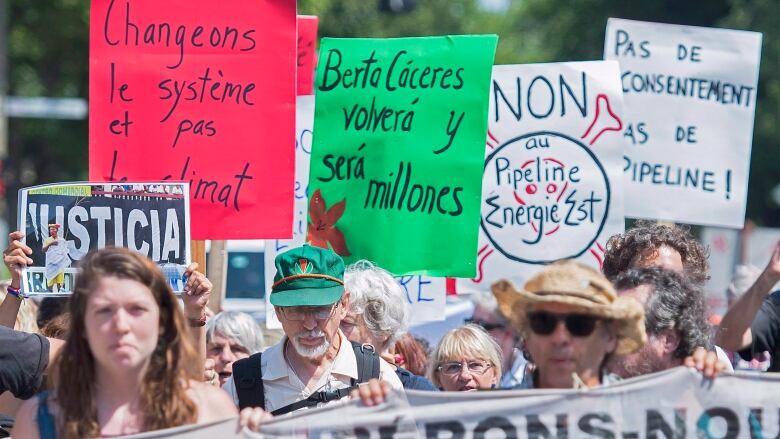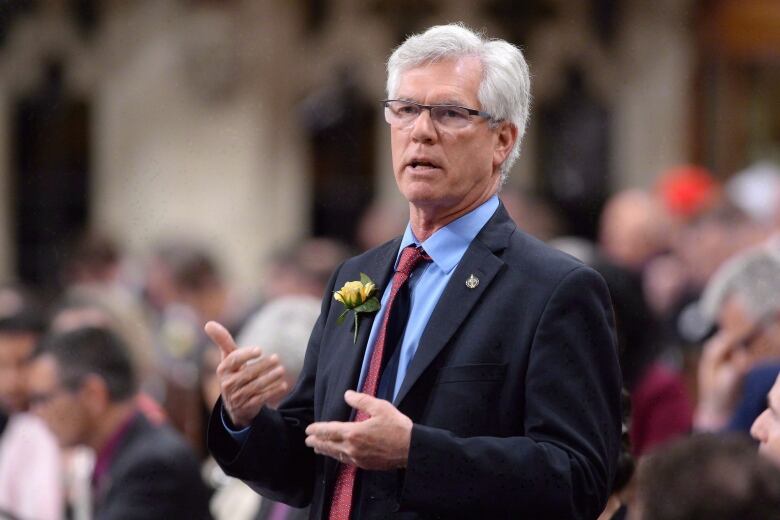Senator report on pipelines calls for NEB to be modernized, depoliticized
Transport committee studied pros and cons of Energy East pipeline from Alberta to New Brunswick

An interim report from senatorsis calling for major changes to how the National Energy Board works as part of a renewed strategy for moving oil products from Western Canada to eastern refineries and coastal ports.
After criss-crossing the country hearing from politicians, stakeholders and other interested parties, the Senate transport and communications committee voiced support for pipelines as the safest way to move the resource safer, senators said at their news conference Tuesday, than rail, for example.
Pipeline construction also creates more jobs across regions than rail transportation, they said.
But the NEB must be refreshed and revitalized in order for its decisions to have more legitimacy and to increase public confidence in the pipeline approval process, the senators said.
Because of the federal government's duty to consult with Indigenous people, the report recommendsestablishing a permanent Indigenous peoples' representative on the board to help reassure Indigenous communities the NEB is receptive to their views.
Senators also want to restrict or even remove the federal cabinet's ability to overrule a board decision, in order to depoliticize the approval process. When cabinet is required to give final approval, it raises questions about whether the decision was based on the merits of the proposal, the senators said.
One of the main projectsthe committee studied is the proposed Energy East pipeline, 4,500-kilometre project thatwould cost $15.7 billion and carry 1.1 million barrels of diluted oilsands bitumen per day from Alberta to New Brunswick.
The committee also recommends theNEB examineextending the pipeline to Nova Scotia to alleviatetraffic in the Bay of Fundy and provide a shorter route to oversea markets.

This week,New BrunswickPremier Brian Gallant said there is still a strong need for the proposed Energy East pipeline, despite the federal government's approval of two pipeline expansions in Western Canada.
Last week, Prime Minister Justin Trudeau approved the Kinder MorganTrans Mountain and Enbridge Line 3 pipelines, raising some questions about whether that could diminish the business case forTransCanada's pipeline heading east.
The National Energy Board review of Energy East was put on hold this fall after the three panellists stepped down.
Natural Resources Minister Jim Carr's office wrote CBC News Wednesday to say three temporary NEB membersDamienCt, of Quebec; RonaldDurelle, of New Brunswick; WilmaJacknife, of Alberta; and AlainJolicoeur, of Ontario may be assigned totravel along the proposed Energy East route to carry out enhanced community and Indigenous engagement.
Three additional, bilingual temporary board members are currently being recruited and will be appointed in the coming weeks for assignment to the Energy East review panel, Carr's office said.












_(720p).jpg)


 OFFICIAL HD MUSIC VIDEO.jpg)
.jpg)



























































































